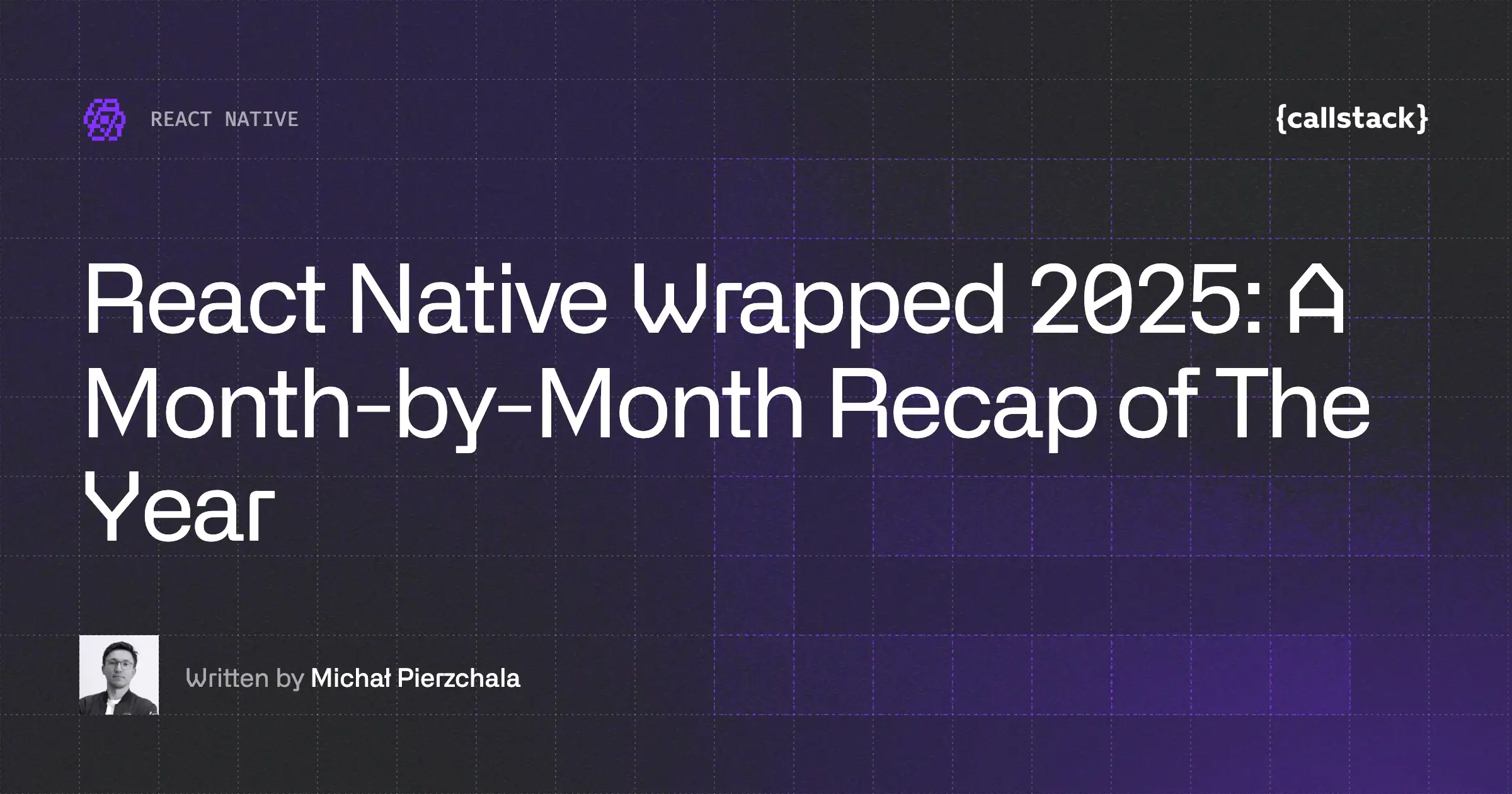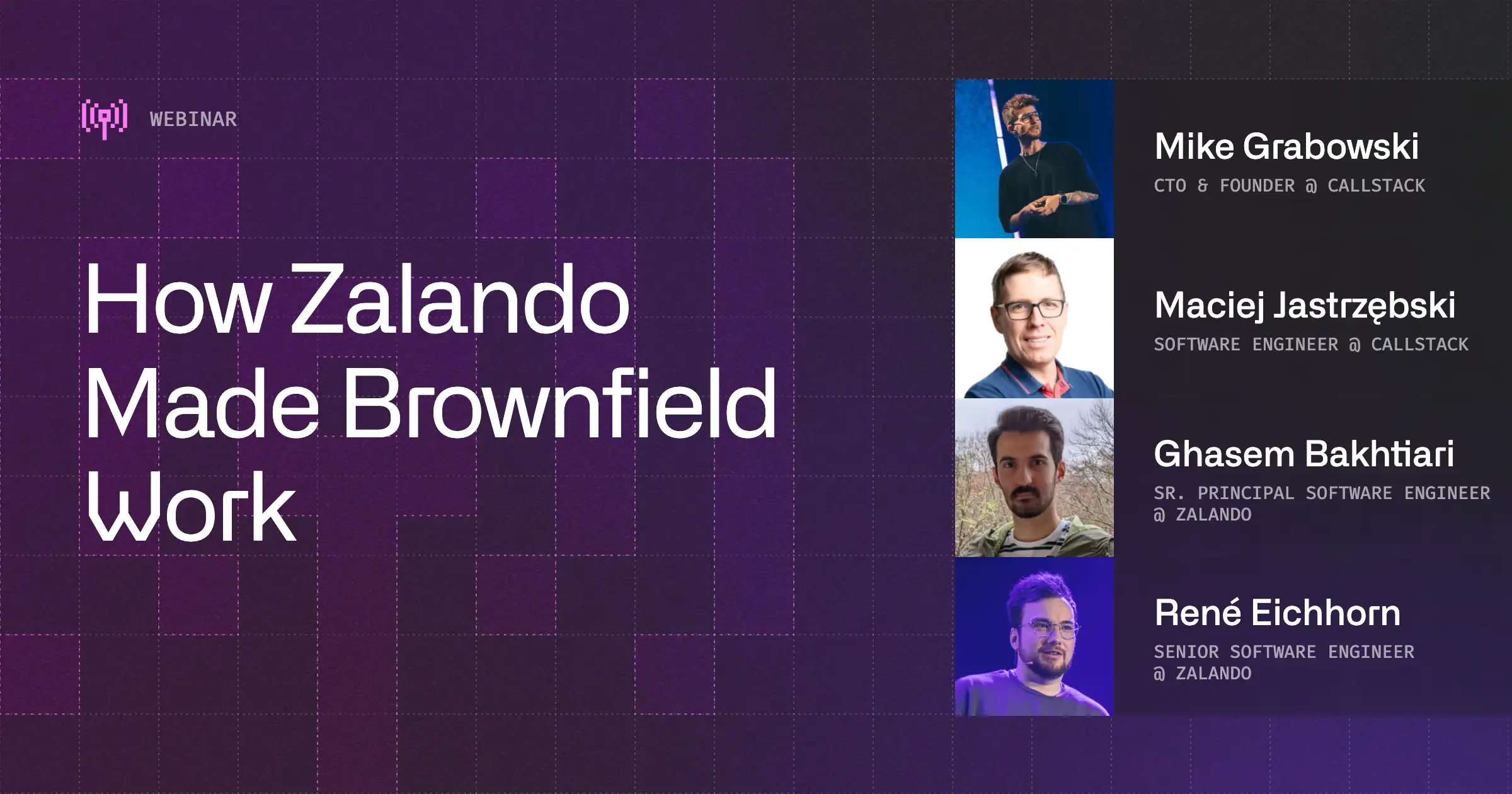The episode #5 is all about Hermes: Mike and his guests discuss its technical features, biggest selling points, and possible future developments. They start with the basics though, so at the beginning, you will find out what Hermes is and what it actually does.
Bringing the Hermes engine to iOS
- Hermes improvements to React Native apps in terms of three metrics: Time To Interactive (TTI), Application Size (APK), Memory consumption
- The “magic” behind Hermes - “Bytecode Precompilation” a.k.a. AOT
- The difference between AOT and JIT
- JIT JS engine pipeline vs Hermes pipeline
- The Hermes roadmap and plans for further improvements
Hermes support for MacOS
In the last part the focus shifts towards bringing Hermes to React Native MacOS. Since Microsoft recently added support for Hermes on MacOS, Elloy describes the process behind it, mentions the solutions considered prior to Hermes, and takes a quick look into the future of Hermes support for MacOS.
- What was the motivation behind adding support for Hermes on MacOS? Any plans for RN Windows?
- Were there any attempts to bring Chakra to run on macOS, to say, provide more unified experience across desktop platforms?
- On Apple devices, unlike Android ones, there were always less of performance and memory related issues when it comes to running React Native applications. What would be the selling point of Hermes in such a case?
This and much more you can find in the Episode #5. Pick your favorite platform and check it out!
Learn more about Hermes

React Native Wrapped 2025: A Month-by-Month Recap of The Year
The first edition of React Native Wrapped looks back at the year RN turned 10 and the ecosystem doubled down on the New Architecture. It provides a month-by-month record of 2025, covering major framework releases, the Legacy Architecture freeze, React 19 integration, and notable developments across tooling, performance, styling, native modules, Expo, and platform adoption.

From Teddy Bears to Voice Agents: Kraen Hansen on Voice AI, Local-First & App Security
Lorem ipsum dolor sit amet, consectetur adipiscing elit. Suspendisse varius enim in eros elementum tristique. Duis cursus, mi quis viverra ornare, eros dolor interdum nulla, ut commodo diam libero vitae erat. Aenean faucibus nibh et justo cursus id rutrum lorem imperdiet. Nunc ut sem vitae risus tristique posuere.

Agent Conf
Lorem ipsum dolor sit amet, consectetur adipiscing elit. Suspendisse varius enim in eros elementum tristique. Duis cursus, mi quis viverra ornare, eros dolor interdum nulla, ut commodo diam libero vitae erat. Aenean faucibus nibh et justo cursus id rutrum lorem imperdiet. Nunc ut sem vitae risus tristique posuere.

Scaling React Native at Zalando: How Brownfield Migration Paid Off
Lorem ipsum dolor sit amet, consectetur adipiscing elit. Suspendisse varius enim in eros elementum tristique. Duis cursus, mi quis viverra ornare, eros dolor interdum nulla, ut commodo diam libero vitae erat. Aenean faucibus nibh et justo cursus id rutrum lorem imperdiet. Nunc ut sem vitae risus tristique posuere.




